Special Open Forum Discussion on “Indonesia’s Climate Future: Land, Energy, and Governance”

PANEL 1
PANEL 2
The land, energy, and governance nexus in Indonesia is complex and immensely important not only for Indonesia’s climate future but also for global climate efforts.
Indonesia is one of the largest greenhouse gas emitters in the world and its emissions continue to grow. The largest sources of emissions are land use change and forestry and energy production. Although the rate of deforestation has been reduced over the past decade, emissions from this source remain high --the largest proportion of overall emissions in Indonesia. Policy shifts and increasing expansion in agriculture, mining, and the biofuel industry present the risk of even more extensive land use change emissions, despite pledges of no new deforestation.
Concomitantly, Indonesia’s energy production remains heavily dependent on high-emissions coal-fired power plants (about 67-70% of on-grid power generation). Despite pledges to reduce coal in the national energy portfolio by 2030, phase out coal by 2050, and rapidly grow the percentage of renewable energy sources in the energy mix, new coal power plants continue to come online, especially in the off-grid industrial sector focused on mineral production. Significantly, this includes such minerals as nickel that are essential for the transition to renewable energy. Moreover, Indonesia is well off
the pace of its expressed target of 23% renewable energy by 2025, having not yet tapped its significant solar power potential.
To deepen our understanding of these issues, our special August 16th program on “Indonesia’s Climate Future: Land, Energy, and Governance" brings together nine top Indonesian and U.S. experts and policy makers. They will outline Indonesia’s strategic approaches to mitigating climate change, present the formidable remaining challenges, and show how public understanding can make a difference. Please join us!
The program is divided into two discussion panels:
Panel 1: Sustainable Land Use and Effective Governance ( 2:00 - 2:45 p.m.)
Moderator:
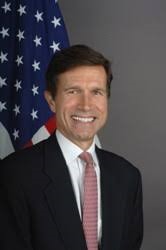
Ambassador Robert O. Blake, Jr.
Former U.S. Ambassador to Indonesia
U.S. Co-Chair, USINDO
Panelists:
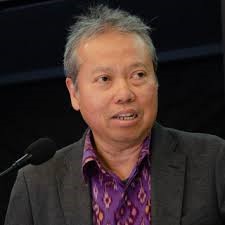
Dr. Budy Resosudarmo, Professor, Arndt-Corden Department of Economics and Head, Indonesia Project, Crawford School of Public Policy, Australian National University
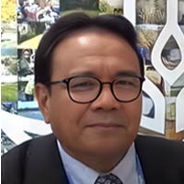 Dr. Daniel Murdiyarso, Principal Scientist, Center for International Forestry Research (CIFOR-ICRAF) and Professor, Department of Geophysics and Meteorology, IPB University (Indonesia)
Dr. Daniel Murdiyarso, Principal Scientist, Center for International Forestry Research (CIFOR-ICRAF) and Professor, Department of Geophysics and Meteorology, IPB University (Indonesia)
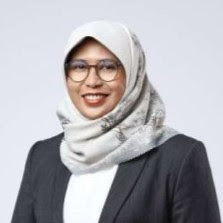
Dr. Alin Halimatussadiah, Head of the Environmental Economic Research Group at the Institute of Economic and Social Research (LPEM), University of Indonesia
 Dr. Matthew Hansen, Professor of Geographical Sciences and Co-Director of the Global Land Analysis and Discovery (GLAD) laboratory, University of Maryland
Dr. Matthew Hansen, Professor of Geographical Sciences and Co-Director of the Global Land Analysis and Discovery (GLAD) laboratory, University of Maryland
Panel 2: Advancing Indonesia’s Energy Transition (2:50 - 3:30 pm)
Moderator:
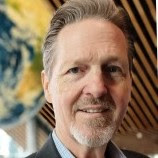 Dr. David McCauley, Senior Advisor to the Global Environment Facility (GEF). The GEF and its funds enable developing countries to address complex challenges affecting the achievement of international environmental goals
Dr. David McCauley, Senior Advisor to the Global Environment Facility (GEF). The GEF and its funds enable developing countries to address complex challenges affecting the achievement of international environmental goals
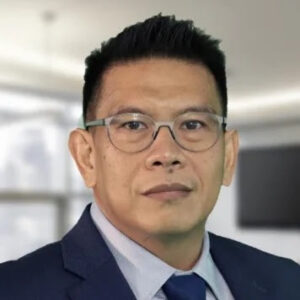 Panelists:Mr. Fabby Tumiwa, Executive Director, Institute for Essential Services Reform (IESR) (Indonesia)
Panelists:Mr. Fabby Tumiwa, Executive Director, Institute for Essential Services Reform (IESR) (Indonesia)
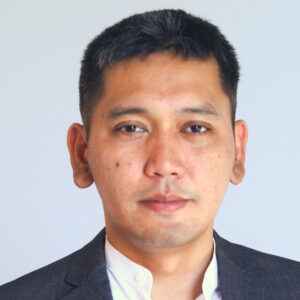
Mr. Putra Adhiguna, Managing Director, Energy Shift Institute (Indonesia)
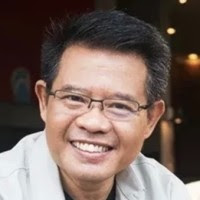 Dr. Agus Sari, CEO, Landscape Indonesia (Indonesia)
Dr. Agus Sari, CEO, Landscape Indonesia (Indonesia)
The United States-Indonesia Society's mission is strengthening mutual understanding between the United States and Indonesia, enhancing the bilateral relationship, and deepening the U.S.-Indonesia Comprehensive Strategic Partnership. We implement our mission through public discussions in each country and long-term bi-national programs in the education, legislative, and other sectors.
